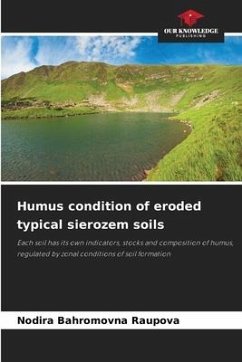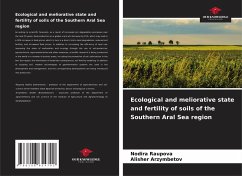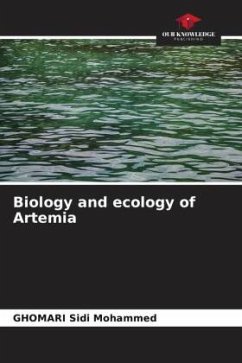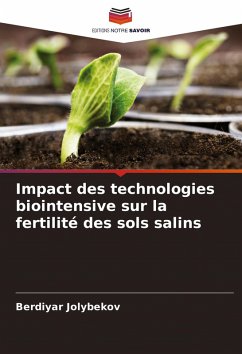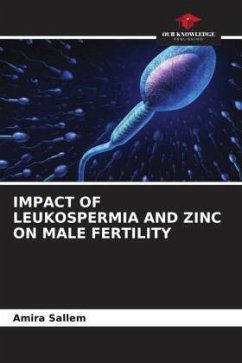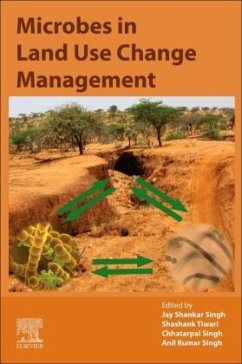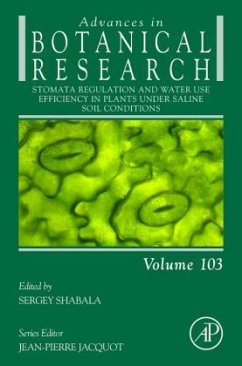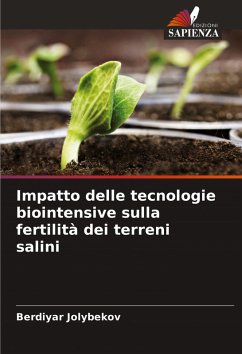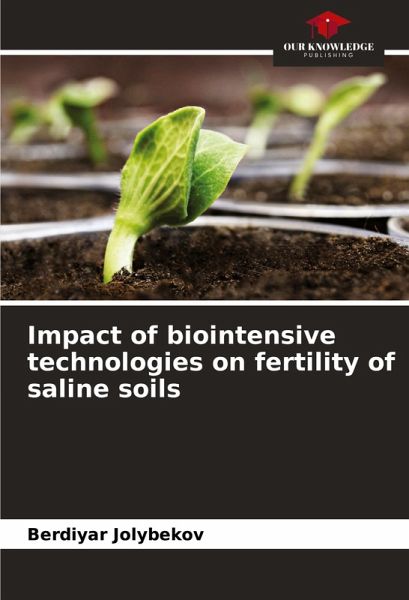
Impact of biointensive technologies on fertility of saline soils
Versandkostenfrei!
Versandfertig in 6-10 Tagen
36,99 €
inkl. MwSt.

PAYBACK Punkte
18 °P sammeln!
The monograph is devoted to research aimed at search and creation of new water-saving and bio-intensive technologies in the Aral Sea region, the use of which will contribute to the economical use of irrigation water, improve the ameliorative state of soils and increase the yield of cultivated vegetable crops on irrigated meadow alluvial saline soils in conditions of acute shortage of irrigation water of poor quality, as well as the high cost of mineral fertilizers. The paper presents data on the current chemical state of drinking and irrigation waters and their influence on salinization under ...
The monograph is devoted to research aimed at search and creation of new water-saving and bio-intensive technologies in the Aral Sea region, the use of which will contribute to the economical use of irrigation water, improve the ameliorative state of soils and increase the yield of cultivated vegetable crops on irrigated meadow alluvial saline soils in conditions of acute shortage of irrigation water of poor quality, as well as the high cost of mineral fertilizers. The paper presents data on the current chemical state of drinking and irrigation waters and their influence on salinization under different irrigation methods. The monograph provides an analysis of the main works of domestic and foreign scientists on the study of the impact of irrigation, organic and green fertilizers on fertility and chemical properties of soils in the arid zone. The effect of different irrigation methods on ameliorative state, soil fertility and yield of vegetable crops was also determined. On the basis of obtained experimental data scientifically grounded conclusions and proposals for production are made.





